
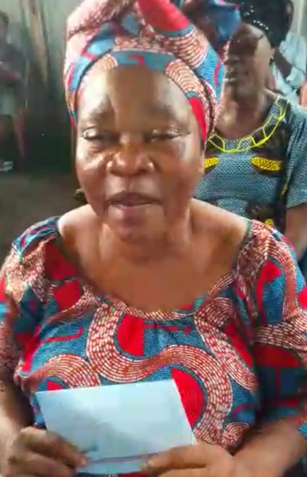
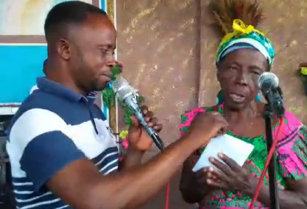
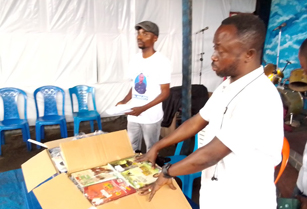
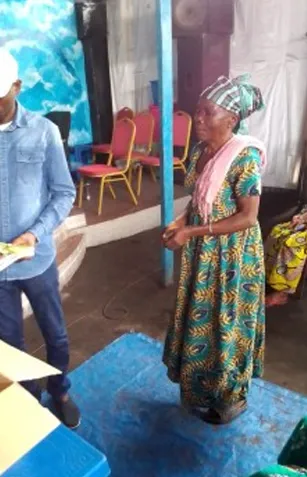
The Project – 35 Foundation (Fondation Pj-35) was created with the initial goal of self-financing one or two widows (particularly those dispossessed by the families of their late husbands) and supporting them until they achieved success, before financing two more women and continuing the cycle. However, as soon as the call for participation was launched, more than 100 widows came forward. Confronted with this reality and unable to turn them away, the project coordinator decided to divide the funds, initially intended to finance two women, among the first 35 mothers who had shown up.
Each of the other participants received a minimum sum of 5 US dollars, while some were given 5,000 Congolese Francs to cover their transportation costs for returning home. When this report was presented to Mr. William Steve Koy, he decided to name the initiative “Project-35,” thus giving birth to the Project-35 Foundation (FPj-35).
During its first three years of existence, Project-35 (Pj-35) regularly supported 60 widows by providing them with small financial assistance to start micro-businesses and become self-sufficient. Additionally, more than 120 widows received donations of fresh produce and other supplies, enabling them to celebrate the end-of-year holidays with dignity
Today, the project’s objective is to develop strong financial resources to assist all widows in need, as well as orphans, not only in all the communes of Kinshasa but also across the entire territory of the Democratic Republic of Congo.
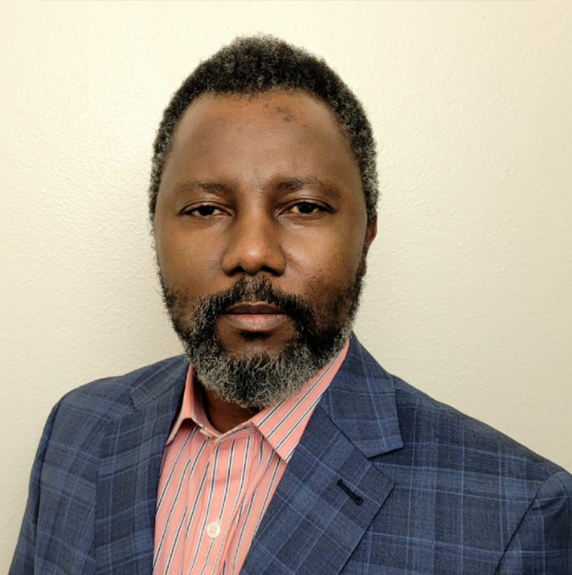
A proud son of his homeland, imbued with deeply rooted values of well-being and humanism passed down from his parents, Mr. William Steve Koy was born to a military father and an entrepreneurial mother at the military academy center in Kananga in Kasai Central, widely known as EFO-Kananga (École de Formation des Officiers de Kananga which translates to Officers Training School of Kananga).
Thanks to his father’s career as a military officer, Mr. William Steve Koy traveled across nearly all regions of the Democratic Republic of Congo (DRC), frequently changing schools mid-year. As a child, he accompanied military battalions, using transport means such as the Libumu Ndunda (military cargo intended for transporting and parachuting soldiers) and Dix-roues (large ten-wheel military trucks) across the country.
He often found himself the only civilian and child among battalions of heavily armed soldiers. When his parents were assigned to areas without school infrastructure, he was either entrusted to host families (always military) or left in the exclusive care of soldiers to complete his school year.
After the divorce of his biological parents, Mr. William Steve Koy also grew up under the roof of a White-American adoptive father who was in Congo for business purposes. This connection brought him into a mixed family, further enriching his life experiences. Living with his American adoptive father, the family was well-known in the region. Mr. William Steve Koy, for his part, was beloved by the children of neighboring villages for his acts of generosity and solidarity. He would gather the children to share agricultural produce such as peanuts, beans, maize, and cassava that were left over after harvests.
Concerned that no one be left out, he ensured that every child returned home with a parcel. Driven by a strong sense of social justice, he even inquired about the wages of day laborers, ensuring that everyone received fair pay for their work. During his journey, he also worked in the family’s mining operations, where he held various roles.
This rich experience instilled in Mr. William Steve Koy fundamental values such as discipline, gratitude, humility, solidarity, awareness from a very young age, a deep love for his country and fellow people, and a total rejection of tribalism. These qualities are now an integral part of his identity. After obtaining his degree in financial management from the Institut Supérieur de Commerce de la Gombe (ISC-Gombe), Mr. William Steve Koy moved to the United States. There, he started his university studies from scratch, beginning with learning the English language and ultimately earning a master’s degree in information technology and administrative management at Central Washington University (CWU). Driven by his constant compassion for helping others, Mr. William Steve Koy served as Vice President of the Congolese Community of Washington State for one term while pursuing his studies.
After earning his master’s degree, he began working with local NGOs, holding positions such as program manager, while simultaneously engaging in entrepreneurial activities. Aware of the immense humanitarian challenges faced by the DRC and inspired by the biblical verse James 1:27 – “Pure and undefiled religion before God the Father is this: to care for orphans and widows in their distress and to keep oneself unspotted from the world” – Mr. WSK decided to act.
With his modest resources, he started by assisting widows in need (particularly those dispossessed by their late husbands’ families). He then sought to unite these women with orphans, giving them hope for a new family and a better future